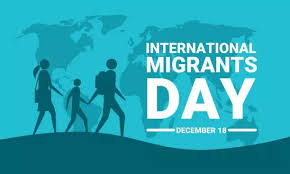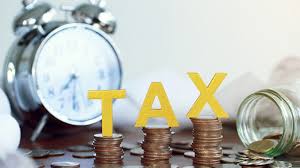Nagasaki Day 2024: Date, Significance, and History
Introduction to Nagasaki Day 2024
Nagasaki Day is observed annually to remember the events of August 9, 1945, when the Japanese city of Nagasaki was bombed by an atomic weapon during World War II. This significant day is a solemn reminder of the devastating impact of nuclear warfare and the urgent need for global peace and disarmament. The year 2024 marks a special observance, highlighting the continued relevance of Nagasaki Day in today’s world.
Date and Observance
Nagasaki Day is commemorated on August 9 each year. This date holds historical significance as it marks the anniversary of the atomic bombing of Nagasaki, the second city in Japan to suffer this devastating attack. The observance includes memorial services, educational programs, and peace campaigns aimed at fostering a deeper understanding of the consequences of nuclear war.
Significance of Nagasaki Day
The significance of Nagasaki Day extends beyond remembrance; it serves as a platform for advocacy against nuclear weapons. The bomb dropped on Nagasaki, known as “Fat Man,” resulted in massive casualties and long-term suffering for survivors. The day emphasizes the need for continued efforts towards nuclear disarmament and the promotion of international peace. It also reflects on the broader humanitarian impact of war and the importance of building a world free from such tragedies.

Why this News is Important
A Reminder of Historical Impact
Nagasaki Day 2024 serves as a critical reminder of the profound impact of the atomic bombings on human history. The events of August 9, 1945, resulted in immense loss of life and suffering. This day helps us reflect on the severe consequences of nuclear warfare and the necessity of learning from the past to build a more peaceful future.
Advocacy for Nuclear Disarmament
The observance of Nagasaki Day underscores the global advocacy for nuclear disarmament. By commemorating this day, we reinforce the importance of international efforts to prevent the proliferation of nuclear weapons. It serves as a call to action for policymakers and citizens alike to support initiatives aimed at reducing nuclear arsenals and promoting global security.
Educational Value
Nagasaki Day also plays a vital role in education, raising awareness about the horrors of nuclear war and the value of peace. Educational programs and memorial activities conducted on this day help inform new generations about the historical events and their implications. This awareness is crucial for fostering a collective commitment to preventing future conflicts and promoting global harmony.
Historical Context:
Background Information
The atomic bombings of Hiroshima and Nagasaki were pivotal events in World War II. On August 6, 1945, the U.S. dropped an atomic bomb on Hiroshima, followed by the bombing of Nagasaki on August 9. These bombings led to Japan’s surrender and the conclusion of the war. The aftermath of these bombings revealed the devastating effects of nuclear weapons and prompted the international community to seek ways to prevent such disasters in the future. The legacy of these events continues to influence global discussions on nuclear policy and peace.
Key Takeaways from Nagasaki Day 2024
| Serial Number | Key Takeaway |
|---|---|
| 1 | Nagasaki Day is observed annually on August 9 to remember the atomic bombing of Nagasaki. |
| 2 | The bombing of Nagasaki occurred three days after the bombing of Hiroshima, marking a significant moment in World War II history. |
| 3 | Nagasaki Day highlights the urgent need for nuclear disarmament and global peace initiatives. |
| 4 | The impact of the atomic bomb on Nagasaki had long-term humanitarian effects, emphasizing the consequences of nuclear warfare. |
| 5 | The day serves as an educational platform to foster understanding and prevent future conflicts involving nuclear weapons. |
Important FAQs for Students from this News
1. What is Nagasaki Day?
Nagasaki Day is observed annually on August 9 to commemorate the atomic bombing of Nagasaki during World War II. It serves as a reminder of the devastating impact of nuclear warfare and promotes global peace and disarmament.
2. Why is August 9 significant?
August 9 is significant because it marks the date in 1945 when the United States dropped an atomic bomb on the Japanese city of Nagasaki, leading to substantial casualties and suffering.
3. How does Nagasaki Day contribute to nuclear disarmament efforts?
Nagasaki Day highlights the importance of nuclear disarmament by reflecting on the horrors of atomic warfare. It advocates for international efforts to reduce and eventually eliminate nuclear weapons to ensure global security.
4. What educational activities are associated with Nagasaki Day?
Educational activities on Nagasaki Day include memorial services, lectures, and peace campaigns that aim to inform the public about the effects of nuclear war and promote a culture of peace.
5. What historical events are related to Nagasaki Day?
Nagasaki Day is related to the broader context of World War II, specifically the atomic bombings of Hiroshima and Nagasaki. These bombings were pivotal in leading to Japan’s surrender and the end of the war.
Some Important Current Affairs Links
















